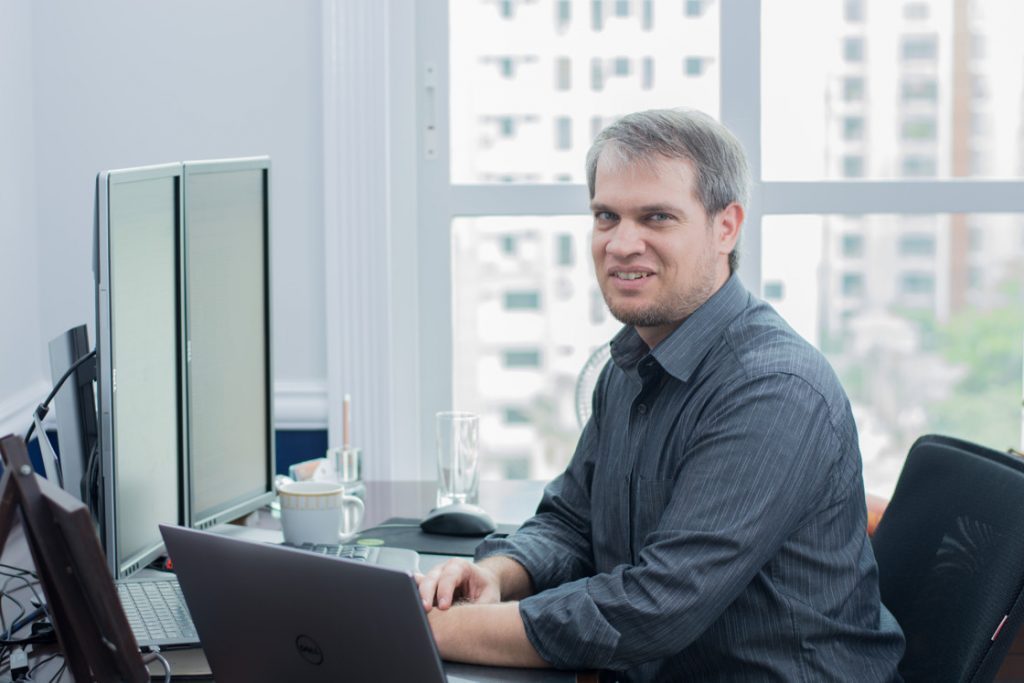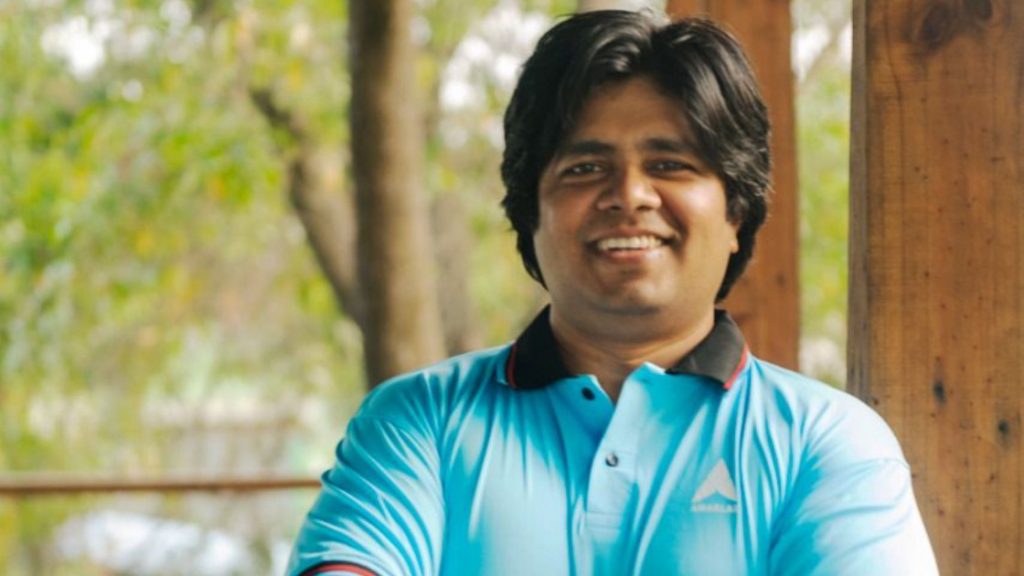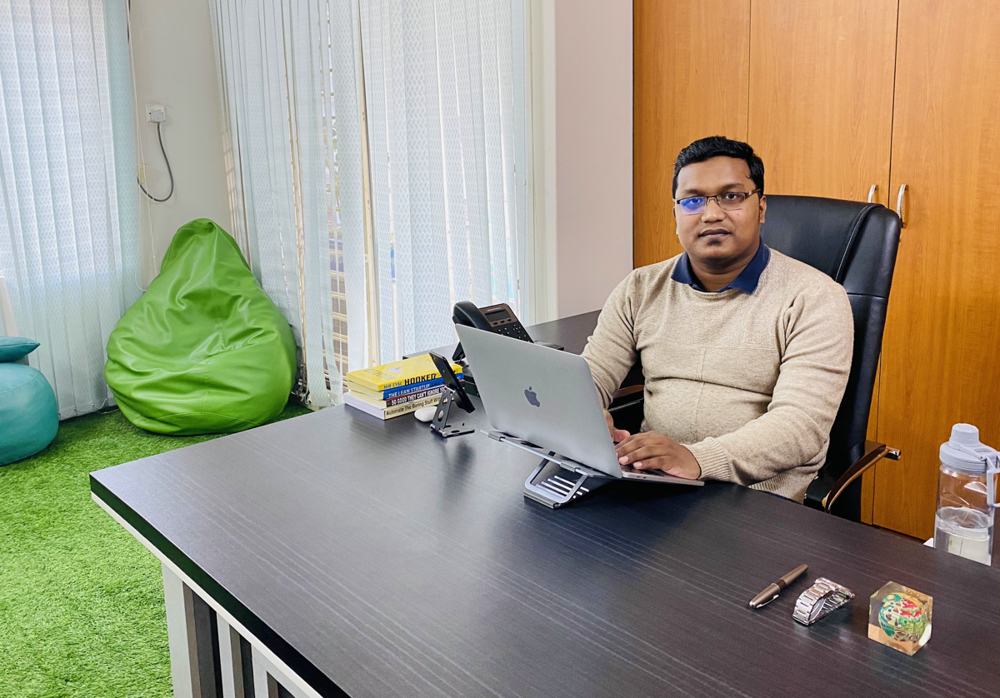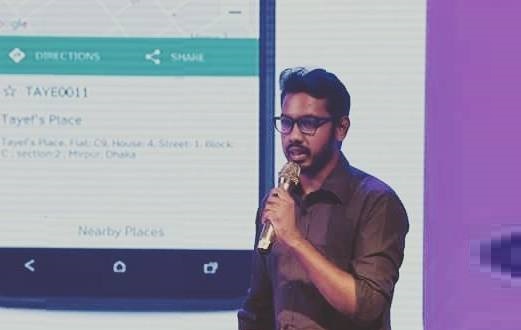
In this collection of lessons from founders, we feature learnings and advice from 5 founders building exciting tech companies in Dhaka: Ellis Miller is the founder and Managing Director of CodeCrafters International. Tazin Shadid is the co-founder and CEO of Amarlab, the at-home diagnostics services startup. Sheikh Shourav is the founder and President of Apploye, a Dhaka-based time-tracking SaaS startup serving global customers. Alfa Bumhira is the co-founder and CEO of ProSpark, the Singapore-based B2B learning startup. Al-amin Sarker Tayef is the founder of BariKoi, a Dhaka-based tech startup solving mapping and location challenges locally.
Future Startup: Over the past year, what lessons have you learned about building a business?

Ellis Miller: Always do the right thing no matter what. Because the cost is always higher when you don’t. Maybe the financial cost will be less. But the real cost will be higher.
Always value people. Because people are not to be used. Life is divine and when we mistreat people, we mistreat the creator. When we love people, we are loving the creator.
Work hard. Do not let your dreams turn into nightmares. Do the right things in the right way.
Tazin Shadid: While working at Microsoft, one of the lessons I have learned was to surround myself with people who are better than me. I always keep my recruiting hat on and whenever I find anyone good, I try to hire them. Recently, Mahenaz Chowdhury joined the Amarlab team as the CMO. I have known her for around 10 years now. She was a volunteer at Spreeha and was an HR manager at GraphicPeople before Amarlab. She got interested in healthcare and hence we boarded her. Our COO, Bishwa, whom I know through Career Key, joined Amarlab during the pandemic as Career Key decided to wind up for now and then I reached out to him as he has experience in operation management. I look out for people who are smarter than me.

I try to give people a platform where they can flourish. Our people can do things their way and are always encouraged to bring their full selves to the work. It allows me to focus on other areas. I do not have to work full-time in Spreeha for this reason.
Another lesson I have learned while working at Microsoft was to always think about getting hit by a bus scenario. My first manager of Microsoft told me that your organization should not stop operating if you are not there anymore. I carry this lesson with me to this day. In every organization I have worked in, I have tried to make it self-reliant and not dependent on one person. If anyone is not there then other people can take over the responsibilities.
Sometimes founders can get fixed into one idea and do not want to change based on the customers’ needs. Many times they blame it on the systems or other aspects rather than being open. I think being flexible is necessary. As a founder, you have to be open to learning from your customers, your team, and other people.
Building a team is important. Founders should spend dedicated time in finding, hiring, and training the right people.
A founder should focus on building the culture from day one. If you are not setting your culture right from the early days, it gets very difficult to fix later on. You have to make sure you are hiring people with the right values. Otherwise, there will be issues in the company in the long run.

Alfa Bumhira: The most important thing is determination. Building a company is tough.
Make sure you understand that when you are starting. What will keep you going through the ups and downs during this journey is your determination.
Suppose you want to solve a problem and things didn't work out as you expected. You should not say “Bye”. Find a problem you can relate to and are passionate about and find a solution for that.
Also, finding the right people who are not afraid to tell you that you are wrong and are willing to guide you in the right direction is important. If you only hire people who agree with you in everything, you will fail.
Sheikh Shourav: You know entrepreneurship is stressful. You need to ensure payroll every month, things can go wrong at any moment, and you make difficult decisions all the time. All these things add to your stress level. What happened over the years is that I have become fascinated by the ideas of Stoic philosophy. That everything is about expectation. If you could manage your expectation, you could manage anything.

The sacrifices you need to make in the process of building an enterprise are pretty huge. You have to sacrifice sleep and relationship and so much more. Whatever success I have achieved and the sacrifice I had to make, if you ask me if I've agreed to make this sacrifice, I would say no if it were only for the success. I agree because I have a mission and I want to contribute. If it were for only money, I would not have been motivated to do this. Of course, now that I'm playing this game, I must make money because there are incentives for different stakeholders involved. Moreover, I need money to do what I want to do. So I have an incentive to earn money.
But if anyone starts a company for earning money alone, it will likely fail. Because earning money by doing something else is much easier. Entrepreneurship demands a lot more which you would not be able to give if you do it for money alone.
While dealing with these dichotomies, I have found a connection between Stoic philosophy and my religious practice. I'm a practicing Muslim. I have found a relationship between my religious practice and stoic philosophy and it helps me to cope with stress, grounds me, and allows me to live mindfully.
I am a measured pessimist. I don't take things at their face value. I try to see both sides of everything. I don't get excited about the positives or see only the negatives. I try to see both and prepare for bad situations. This is one of the reasons I emphasize systems and processes because people can change but systems don't. If you put together strong systems and put that into words, it could save you time and effort and ensure sustainability regardless of people.

Al-amin Sarker Tayef: Having a co-founder and mentor is important. As a founder, you’ll go through a lot that you can share with your co-founders.
A mentor can help to navigate difficult situations. A mentor can also help to build the network which helps in the long run in building the company. I found these insights very helpful in the process of building barikoi.
A lot of people will advise you and push you to do things that you would feel uncomfortable with.
If you don’t feel comfortable doing something, don't do it. Do what you want to do and be patient. The dots will connect as you keep iterating!
Originally published on 25 August 2021, updated on 18 April 2023
